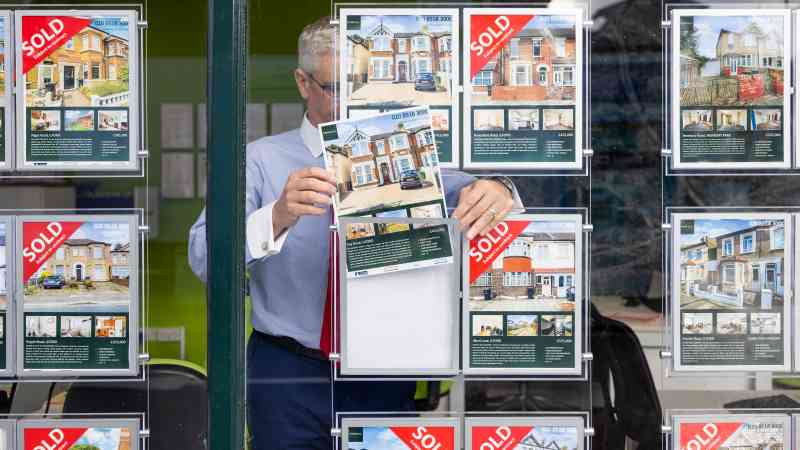The proportion of former rental properties for sale is the highest on record, an increase that may be driven by landlords’ fears of an increase in capital gains tax in the budget, according to Rightmove.
Eighteen per cent of properties for sale were previously on the rental market, compared with 8 per cent in 2010. The property website said that landlords’ fears that the budget on October 30 would result in an increase in capital gains tax — a tax on the profit made when an asset is sold — could be behind the surge.
London has emerged as a hotspot, with 29 per cent of homes for sale having previously been rental properties. Scotland and the northeast follow, with a proportion of 19 per cent.
The percentage has been slowly increasing for months. The previous five-year average for homes switching from the rental market to the sales market is 14 per cent, according to Rightmove. Tim Bannister, its property expert, noted that while the trend was increasing, it did not signal a “mass exodus of landlords”.
The number of new properties entering the sales market has risen by 14 per cent compared with a year ago, a period when the market was subdued by high inflation and peak mortgage rates. Compared with 2019, the last year before the pandemic, the number of homes for sale this year has increased by 3 per cent.
Bannister said: “In recent years it has become more attractive for some landlords to leave the rental sector rather than to continue to invest in it, due to rising costs, taxes and legislation. We’ve seen over the last few years how the supply and demand imbalance can contribute to rising rents, so there is a worry that without encouragement for landlords to stay in rather than leave the rental sector it is tenants who will pay the price.”
Sir Keir Starmer, the prime minister, has warned that the budget will be “painful” and that those with “the broadest shoulders should bear the heaviest burden”. Rachel Reeves, the chancellor, has declined to rule out an increase in CGT.
At present CGT is levied at rates of between 10 and 28 per cent and is levied on assets, including second homes and businesses. An increase could lead to a “significant rise” in the tax burden for landlords, Marc von Grundherr, director of the estate agent Benham & Reeves, said.
“This would be yet another blow to those who provide vital housing stock that is sorely needed within the rental sector, following a string of legislative changes already introduced in recent years to dent profitability. Despite this, we’re simply not seeing the exodus of landlords that is so often reported, as despite such changes buy-to-let remains a strong investment. It’s certainly one that most take with a long-term view and they expect ups and downs, but generally speaking the returns are consistently good.”
